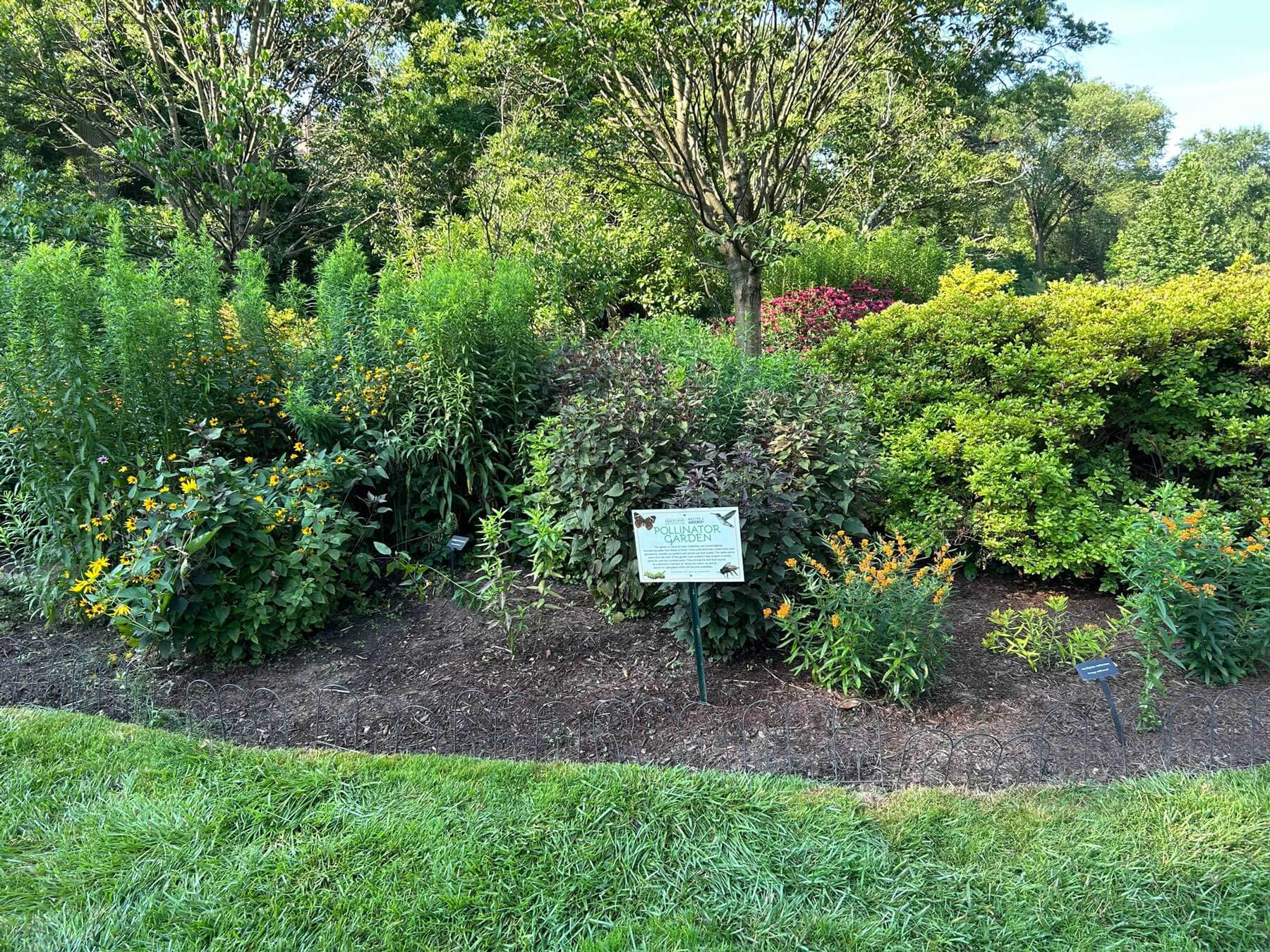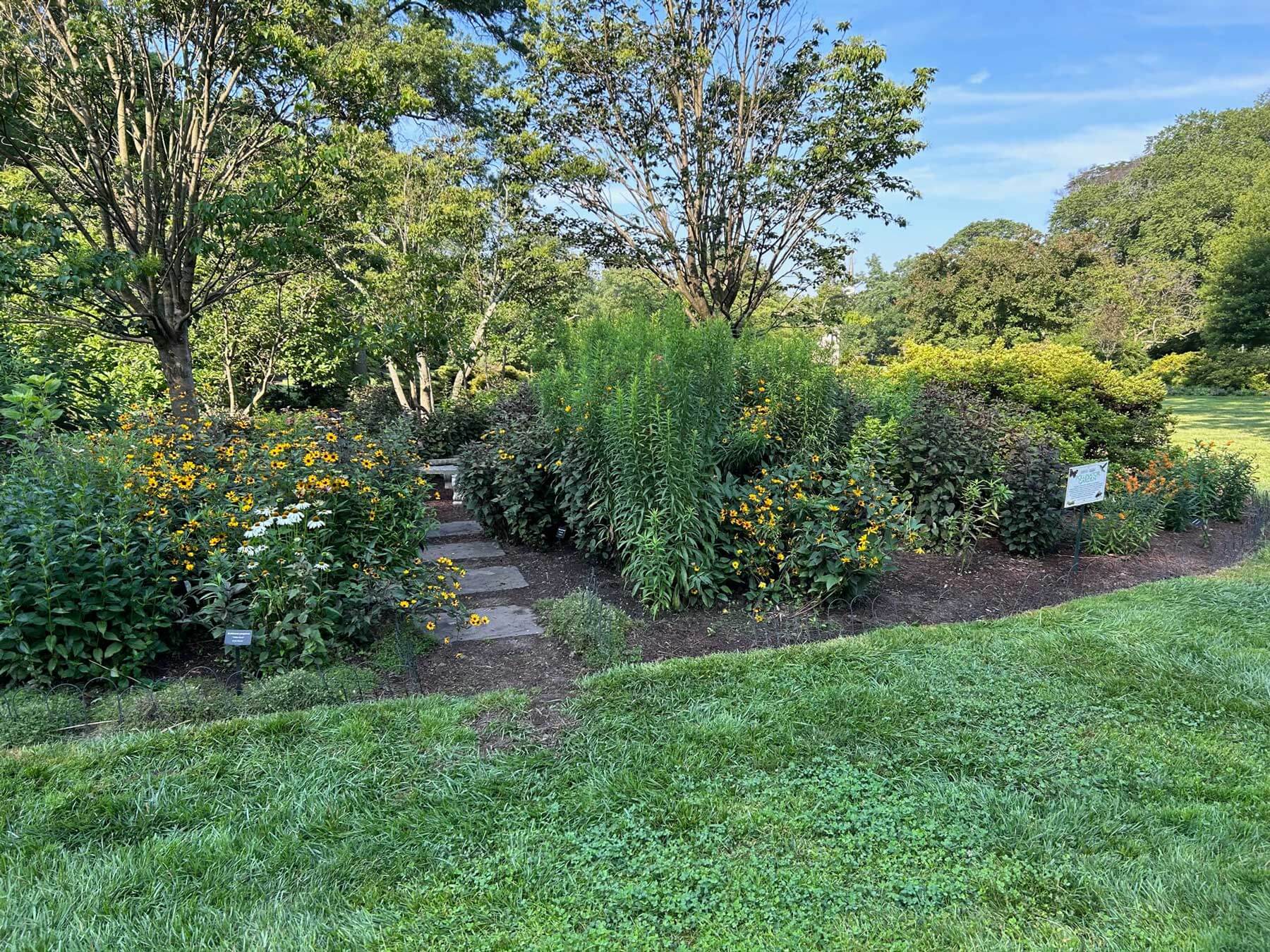Pollinator Garden
What is a pollinator garden?
How does it differ from other gardens?
Why is it important to plant pollinator gardens?
A pollinator garden contains mostly native plants that allow bees, butterflies, and other small animals to transfer pollen from one flower to the next. The pollen combines with ova in the flowers to produce seeds which become new flowers. This process is called cross pollination. Without bees, butterflies, hummingbirds, and other insects to carry the pollen, no flowers would appear each year.
Pollinator gardens need mostly native plants with something blooming from Spring through Autumn. In the United States native plants are those that have been here before the Pilgrims arrived. They are rich in nectar, the sweet plant juice upon which the bees, butterflies, and hummingbirds feed. Although some are not particular about which native plants they visit, many will only go to the specific plants with which they have evolved over the past 130 million years. A pollinator garden provides both a home and a feeding site.
Most of Sherwood Gardens is composed of tulips and annual plants. Tulips do not require cross pollination and have no nectar. Many annuals lack nectar as well. None of these flowers provides habitat for bees, butterflies, and hummingbirds.
Pollinator plant loss due to building of roads and communities, pesticide use and climate change result in less habitat for pollinators. As a result, bees, butterflies, and hummingbirds are under threat of extinction.
Besides being a home for pollinators, a pollinator garden is a beautiful space for park visitors to behold. Baltimore City Master Gardeners are here to develop and maintain it. However, this is your garden, and you can help. If you are interested in planting or weeding with us, let the Guilford Association office manager know (tel: 410-889-1717, email: officemanager@guilfordassociation.org). We will contact you whenever we have a gardening maintenance activity scheduled. If you see anyone trampling over your pollinator garden, shoo them away. Please.


